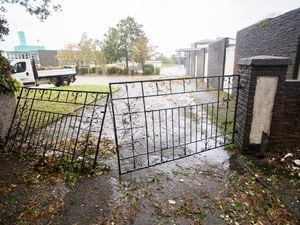OPINION: Will anything be done to tackle the cost of living crisis?
Deputy Gavin St Pier explains what’s on the agenda at this week’s States meeting

AS THE months of this States’ term rush by, it’s time once again for the Policy & Resources Committee and the Committee for Economic Development to kick off this week’s meeting of the States of Deliberation with each giving one of their biannual statements.
Sadly, given the presiding officer’s interpretation of the rules of procedure, this precludes any Rule 11 oral questions being directed at either committee. Instead, after each statement, members must try and use the opportunity to fire as many questions relating to the committee’s mandate as the time allocated permits. In practice, this means each member may have a chance to ask one or, if they are lucky, perhaps two questions. Given the number of pressing current issues, it seems likely that the full time allocated will be used (and maybe a bit more, with the presiding officer’s discretion, given the rest of the agenda is, once again, light).

The cost of living crisis is an obvious area for scrutiny. The Policy & Resources Committee in response to a media question a couple of months ago said, in essence, that it was keeping inflation under a watching brief. In the meantime, the UK, Jersey and the Isle of Man have all had mini-budgets to respond to the crisis – with a further ‘fiscal event’ promised by Liz Truss, the incoming UK prime minister.
As inflation, particularly in energy costs, continues to accelerate away, will – and if so, how – will the most vulnerable and hard-pressed in our community be supported through the coming winter months? So far, our government’s response through Deputy Roffey’s States’ Trading Supervisory Board has been to sanction a 9% increase in Guernsey Electricity’s tariffs from 1 July and a similar increase in waste charges – with more of both promised to follow. Try as we might, warm words and hot air alone will not heat Guernsey homes this winter.
The only other response has come from Deputy Roffey wearing a different hat as president of the Committee for Employment & Social Security, which has produced a late policy letter which will be debated in a supplementary billet. This proposes an interim 5% increase in income support ahead of the annual uprating report for 2023, due for debate in November. Welcome though this is for the 4,756 individuals in our community supported by income support, it does nothing for everyone else facing the same cost pressures, particularly of course those just the wrong side of the income support cut-off line.
With one committee championing the need for price rises and another – ironically led by the same individual – doing what it can to mitigate the worst impacts on the most in need and whilst the two leading committees for the economy – Policy & Resources and Economic Development – are notable for their steadfast silence, it is quite clear that there is no ‘whole of government’ response to this crisis.
There is no execution of a strategic plan in response. There is no seizing of opportunity presented by the burning platform. What are the committees doing, working across government, to lever the crisis to deliver changes we know are long overdue, such as to reconfigure the winter fuel allowance to ensure it really reaches those who most need it? Will anything be done to help householders improve home insulation or adopt heat pumps or other more efficient home heating systems?
But the absence of such a response should not be a surprise from a government wedded to ticking its way through a task list of ‘priorities’. React-and-muddle-through is the best response from government that we can hope for.
Into this silent pond of tranquillity, Deputy Oliver and I will be tossing a small pebble. In response to the proposals to increase waste charges each year from 2022-25 at the rate of inflation – currently 7% – plus an additional 5%, we will be laying an amendment which seeks to defer this until 2023 and also cap it at no more than 5% for bag labels and £5 for the fixed charge. Waste charges are not the most significant inflationary input by a long chalk, but they are one of the very few that the States can control. It is going to be a revealing test to see whether the majority of the Assembly gives credence to the Government Work Plan’s stated recognition of inflation as one of the ‘most pressing and immediate domestic pressures the States must tackle’ and pull one lever available to them by supporting our amendment or whether they simply choose to bury those words in a sea of warm rhetoric.
Aside from debates that will ‘note’ the 2021 accounts for the Guernsey Financial Services Commission and Guernsey Electricity, the only item of substance is a policy letter on the Justice Framework from the Committee for Home Affairs. The propositions are bland: to support the broadening of the scope of the Domestic Abuse Strategy to include sexual violence and to expedite the delivery of a pilot scheme for a much-needed Sexual Assault Referral Centre. But as a community, we cannot begin to address the problem without first recognising we have one. For too long, the problem of sexual violence has been swept under the carpet. It’s been presented – without any supporting evidence – as a problem that is more prevalent in larger jurisdictions.
Credit is due to the committee for recognising that sexual violence is a significant social and criminal issue, with woefully low rates of reporting, prosecution and conviction, resulting in enormous personal and community cost, trauma and mental ill health. The Domestic Abuse and Sexual Violence Strategy 2022-25 and the commitment to the rapid roll-out of a SARC are important steps forward. But there is much still to do to improve justice for victims, including updating a police caution that is 30 years behind the times and which Law Enforcement recognises can impede some prosecutions and a duplicative and intensely manual justice system that sucks up valuable time and resources for both the police and the prosecutors.
Home Affairs deserve support as they continue to press for much needed reform in this area of their work.





